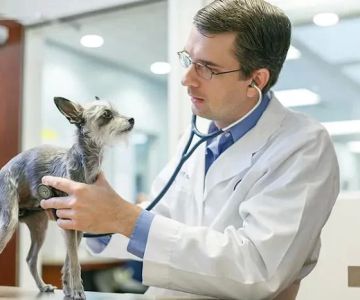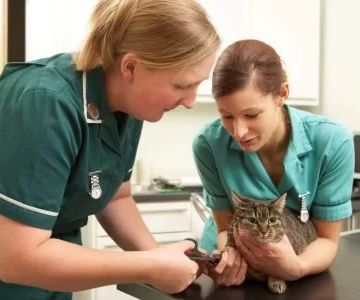What Subjects Are Needed to Become a Veterinarian: A Clear Path to Your Veterinary Career
- 1-Understanding-veterinary-subject-requirements
- 2-Core-science-subjects-for-veterinary-school
- 3-Additional-subjects-to-strengthen-your-application
- 4-Real-world-experience-and-preparation-for-vet-school
- 6-Final-thoughts-and-next-steps-to-become-a-veterinarian
1. Understanding Veterinary Subject Requirements: The Foundation of Your Career
Embarking on the journey to become a veterinarian starts with understanding what subjects are needed to become a veterinarian. Veterinary schools typically require a solid foundation in sciences and related fields to prepare students for the rigorous coursework ahead. This foundational knowledge equips aspiring vets with the critical thinking and technical skills necessary to handle diverse animal health challenges.
For example, a student named Sarah, passionate about animal welfare from a young age, carefully chose her high school and college subjects to align with veterinary prerequisites. Her strategic selection of courses helped her gain acceptance into a top veterinary program, proving the importance of early academic planning.
2. Core Science Subjects for Veterinary School Success
The core subjects essential for anyone wondering what subjects are needed to become a veterinarian include biology, chemistry, and physics. Biology forms the cornerstone, as understanding anatomy, physiology, and genetics is critical in veterinary medicine. Chemistry complements this by explaining the biochemical processes within animals, while physics supports knowledge in medical imaging and biomechanics.
Most veterinary schools require applicants to complete courses in organic chemistry and biochemistry, highlighting their importance. For instance, organic chemistry provides insights into drug interactions, a vital area when prescribing medications for different species.
Additionally, courses in mathematics, particularly statistics, aid in research and data analysis — skills increasingly valuable in veterinary practice and animal health studies.
2.1 The Importance of Advanced Biology
Advanced biology classes that cover microbiology, immunology, and pathology provide a deeper understanding of animal diseases and immune responses. This knowledge directly impacts diagnosis and treatment plans, making it a must-have for prospective veterinarians.
3. Additional Subjects to Strengthen Your Veterinary Application
Besides core sciences, subjects such as psychology, animal science, and English can add significant value to your veterinary school application. Psychology helps in understanding animal behavior and human-animal interactions, a crucial skill for effective communication with pet owners.
Courses in animal science often include practical animal handling and welfare studies, providing hands-on experience that complements theoretical knowledge. Strong communication skills gained through English classes also prepare students for writing research papers and educating clients.
One notable case is James, who supplemented his science-heavy curriculum with communication courses, later crediting these skills for his ability to build trust with clients and colleagues during his veterinary career.
4. Real-World Experience and Preparation Before Veterinary School
Subjects alone don’t paint the full picture of readiness. Gaining real-world experience through internships, volunteering at animal shelters, or shadowing practicing veterinarians can be invaluable. These experiences reinforce academic learning and provide insight into the daily responsibilities and challenges of veterinary medicine.
For example, a recent viral story shared by a vet school student detailed how volunteering at a local rescue gave her hands-on exposure to emergency care, helping her feel more confident and prepared for the intense clinical training in vet school.
4.1 Building a Strong Application Portfolio
Combining strong subject knowledge with practical experience builds a compelling veterinary school application. Admissions committees look for well-rounded candidates who demonstrate both academic excellence and passion for animal care.
5. Navigating the Veterinary School Admission Process Successfully
Understanding what subjects are needed to become a veterinarian is just one part of the journey. Preparing for the admission process involves maintaining high grades, preparing for entrance exams like the GRE or the Veterinary College Admission Test (VCAT), and writing impactful personal statements.
Veterinary programs often require letters of recommendation from science instructors or veterinarians who have supervised your practical experience, reinforcing the need for strong relationships and a consistent track record.
6. Final Thoughts and Next Steps to Become a Veterinarian
Choosing the right subjects is the crucial first step toward a rewarding veterinary career. If you’re serious about this path, focus on biology, chemistry, physics, and supportive courses like psychology and animal science. Combine these with practical experience to build a strong foundation.
For those ready to equip themselves further, consider investing in comprehensive preparatory books, online courses, or tutoring programs tailored to veterinary school prerequisites. These resources can give you an edge in understanding complex topics and succeeding in admissions.
Explore carefully curated materials and tools designed to help prospective veterinarians achieve their dreams and navigate the challenging but rewarding path to veterinary school. Taking action now means moving closer to a fulfilling career helping animals and their owners thrive.











